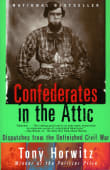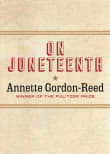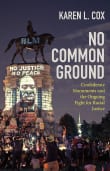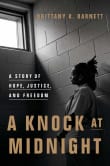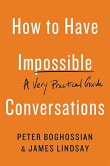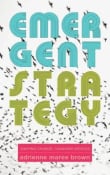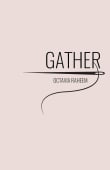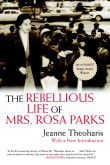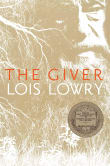How the Word Is Passed
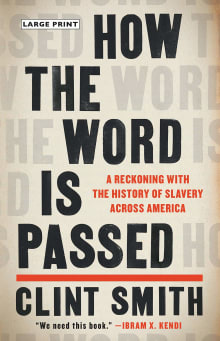
Book description
ONE OF BARACK OBAMA'S FAVOURITE BOOKS OF THE YEAR
A NUMBER ONE NEW YORK TIMES BESTSELLER
LONGLISTED FOR THE NATIONAL BOOK AWARD FOR NON-FICTION
'A beautifully readable reminder of how much of our urgent, collective history resounds in places all around us that have been hidden in plain sight.' Afua…
Why read it?
9 authors picked How the Word Is Passed as one of their favorite books. Why do they recommend it?

As someone raised in small-town USA, I had to come to terms with the fact that I was taught a white-washed, largely inaccurate American history. It was up to me to re-educate myself.
As someone who can get bogged down by long lists of dates and details, How the Word is Passed gave me a modern lens for understanding the history around slavery. I was gripped by Smith’s lyrical, humane approach.
This is the sort of book that makes the world better.
From Shannan's list on cultivating empathy and connection in a divided world.

When I read this book on how the stories of slavery are remembered and strategically forgotten in different places among different groups, I remember being blown away by how its larger message resonated with the one I was drawing out in my book.
Through different moments in the racial past, we were both speaking to the dangers of distorting and erasing the messiness of the nation’s past.
Clint Smith also writes with the most beautiful prose and so beautifully humanizes the power of reckonings and the violence of their absence.
From Hajar's list on understanding revisionist history politics.

Clint Smith takes on a huge subject in this book—part memoir, part record of slavery in the United States and beyond. How the Word is Passed is structured around a series of visits Smith makes to sites associated with enslaved people and those who exploited them.
At each place he visits, he delves into its harrowing past, writes of his encounters with people he meets there, and notes his personal responses. The results are enlightening, intimate, and moving.
Smith questions the versions of history that many of his readers will have been taught and asks them to think critically about…

How the Word is Passed considers the ways in which America has depicted, struggled with, and ignored its history of slavery through public monuments, museums, and other sites of remembrance.
I work in the field of public history, and I found this book to be an insightful critique of the differences between history, nostalgia, and memory. In some ways, this book reads as a travelogue, as we follow the author through the United States and to Africa as he struggles to understand how his nation has reckoned with its past.
The book is personal while at the same time revealing…

Growing up in Virginia, with parents involved in the civil rights movement, I thought I knew this history. But, author Clint Smith took me deeper with background, research, and personal experience.
His is the voice of calm in the chaos, reflection amidst sound bites.
By understanding the ugly and horrifying parts of our history and taking off the blinders of veneration, we can truly work toward “liberty and justice for all.”

Clint Smith explores the legacy of slavery through visits to key landmarks and monuments, such as the Monticello plantation in Virginia, Galveston Island in Texas, and Gorée Island off the coast of Senegal. This book is beautifully written and well-researched, breathing life into history through an array of stories and firsthand recollections.
So, why is it a must-read for managers? It’s important for all people to understand the central role that racism plays in shaping this country’s systems and structures. In particular, well-intentioned managers need to reckon with the role that slavery has played in shaping traditional management practices so…
From Monna's list on helping managers build resilience in challenging times.

To prepare students to critique and reform inequitable social policies, social work educators need to cultivate students’ critical thinking, including the ability to critically examine narratives and presentations of fact that shape what we have come to believe about our country and the legacies of injustice.
Smith’s text does that expertly, through the compelling presentation of significant sites in U.S. history—particularly around slavery and racial oppression.
Students can be assigned to read a chapter about Monticello, Angola Prison, or downtown Manhattan. They’ll be transported to a different place and time, and they will learn to see our own moment differently.
From Melinda's list on igniting students’ passions about policy change.

I believe that this book is one of those special texts that is as much about the present as it is the past. Best of all, Smith interviews and engages with so many different individuals in his research that he rarely needs to speak for others. This book teems with first-hand personal accounts that include everyday people expressing a little bit of everything, be it passing on racist misinformation, correcting current misconceptions with keen historical insights, or philosophically musing about public memory, commemoration, and memorialization.
From Seth's list on confronting slavery and how it impacts society today.

While David Blight helps us understand how a post Civil War reunion was built on a terribly incomplete and racially-biased foundation, Clint Smith’s beautifully written book probes the way various Americans, black and white, Northern and Southern, as well as some non-Americans, are currently reckoning with the slave past. In the book, we follow Smith, an African-American journalist and poet, on his travels to several historic sites, among them Thomas Jefferson’s Monticello plantation in Virginia; the Whitney Plantation in Louisiana; a Confederate cemetery; and Gorée Island in Senegal. Along the way, we not only learn a lot about the history…
From Nina's list on the ongoing legacy of the American Civil War.
Want books like How the Word Is Passed?
Our community of 10,000+ authors has personally recommended 100 books like How the Word Is Passed.
Browse books like How the Word Is Passed
5 book lists we think you will like!
Interested in historic sites, discrimination, and plantations?
10,000+ authors have recommended their favorite books and what they love about them. Browse their picks for the best books about historic sites, discrimination, and plantations.

